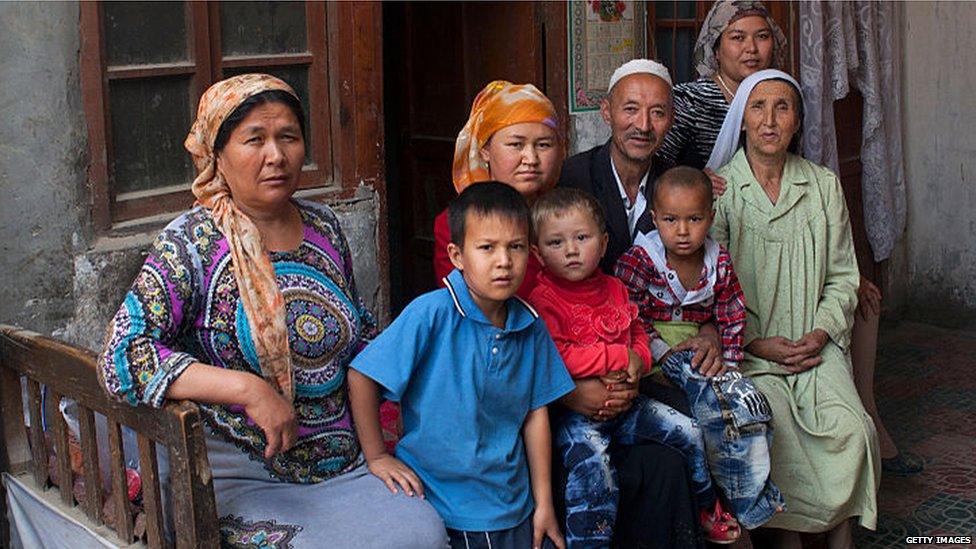Uighur inmates dig their way out of Thai jail
- Published
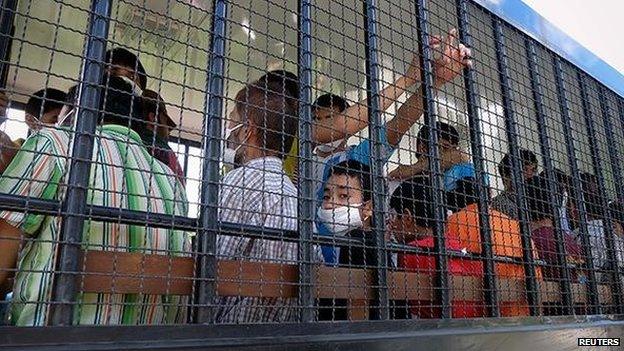
Detained Uighurs in Thailand say they left to escape persecution in Xinjiang
Some 20 ethnic Uighurs from China are on the run after escaping from a Thai detention centre, officials say.
The inmates were among a group of more than 200 Uighurs detained in 2014.
Officials said 25 inmates dug holes in cell walls and used blankets to climb over the jail's barbed wire near the Malaysia border. Five have been caught.
Hundreds of Muslim Uighurs have left their home region of Xinjiang in recent years alleging oppression, which China denies. It calls them illegal migrants.
The dramatic overnight escape happened in southern Songkhla province, immigration officials said. The inmates used broken tiles to dig through their cell walls.
"Twenty are still at large," a senior police official at the detention centre told Reuters. "Heavy rain helped to mask the loud escape noises."
He said checkpoints had been set up along the border.
Many Uighurs flee to South-East Asia seeking to travel on to Turkey. There was an outcry when Thailand returned more than 100 Uighurs to China in July 2015.
Earlier that year a court in Thailand had ruled that a group of Uighurs could remain in detention until their nationalities were proven. Both China and Turkey claim them as their citizens.
Those who escaped on Monday had no documents and their nationality could not be determined, external, a Thai immigration official told Khaosod newspaper.
China's authorities blame Uighur separatists for instigating violence and the frequent unrest in Xinjiang. They have launched a widespread crackdown in Xinjiang, arresting hundreds and executing dozens in recent years.
Activists say that Uighurs have experienced economic, cultural and religious repression by the authorities over the decades, in addition to difficulties obtaining passports.
One theory for the deadly 2015 bombing of Bangkok's Erawan shrine is that it was carried out in revenge for the forcible repatriation of the Uighurs in July of that year.

Uighurs and Xinjiang
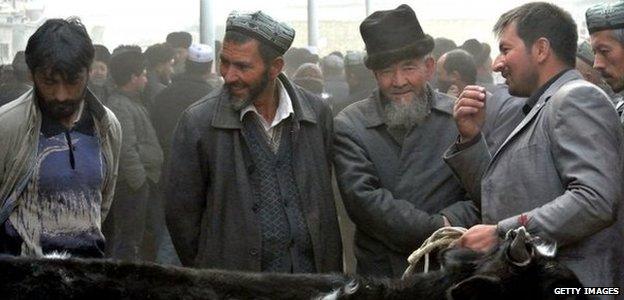
Uighurs are ethnically Turkic Muslims
They make up about 45% of the region's population; 40% are Han Chinese
China re-established control in 1949 after crushing short-lived state of East Turkestan
Since then, there has been large-scale immigration of Han Chinese
Uighurs fear erosion of traditional culture
- Published9 July 2015

- Published10 July 2015
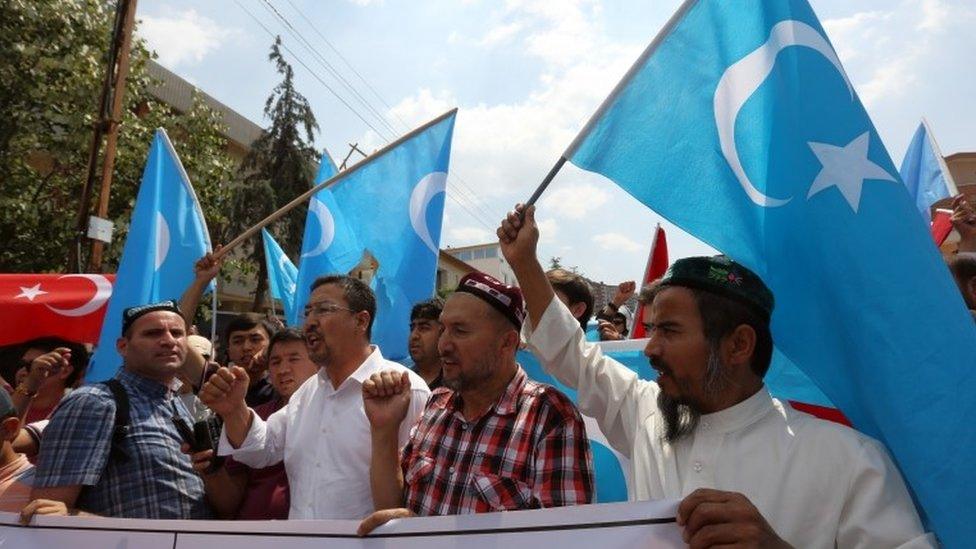
- Published27 March 2015
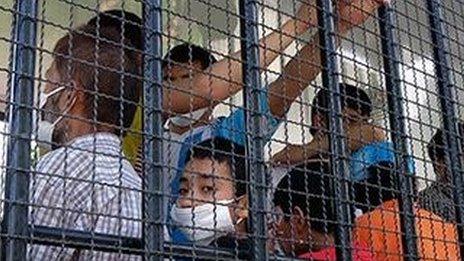
- Published14 January 2015
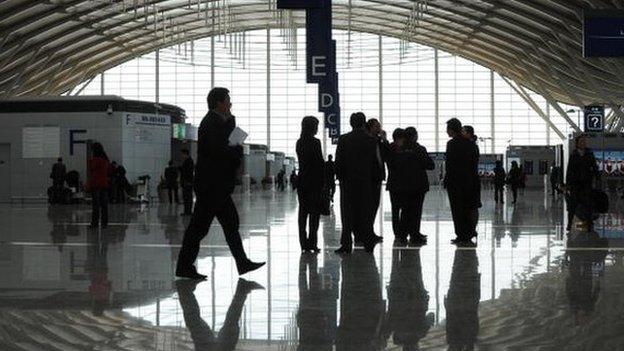
- Published29 April 2014
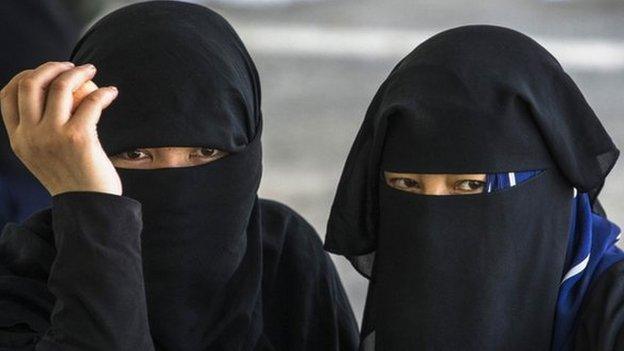
- Published26 September 2014
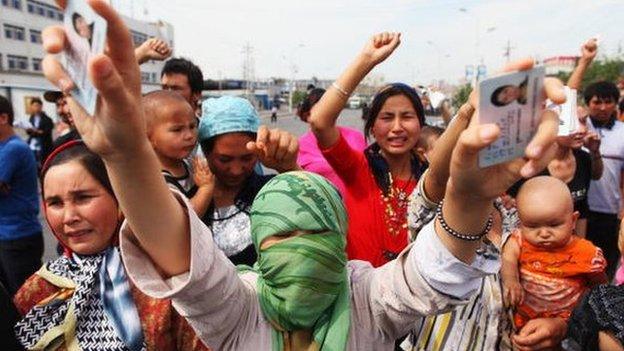
- Published24 May 2022
